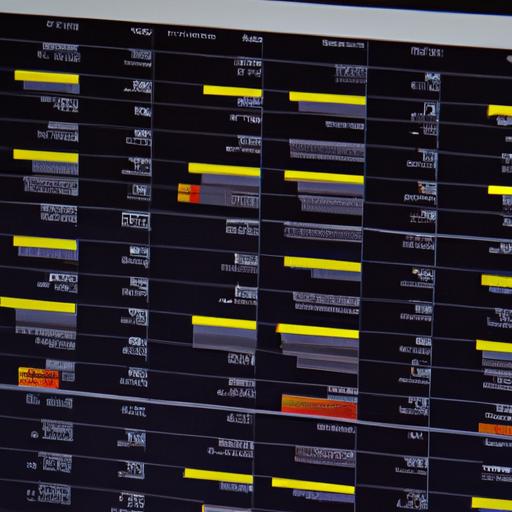What is Antivirus Software: A Comprehensive Guide to Protecting Your Digital World

In today’s digital age, where cyber threats lurk around every corner, safeguarding your devices and personal information has become more crucial than ever. This is where antivirus software comes into play, acting as a virtual shield against malicious software and cyber-attacks. But what exactly is antivirus software, and why is it so essential? Let’s dive in and explore the world of antivirus software together.
Introduction
As we navigate the vast online landscape, we often encounter potential risks that can compromise our privacy and security. This is where antivirus software steps in, acting as a digital guardian to protect our devices from harmful viruses, malware, and other cyber threats. But what exactly is antivirus software?
Antivirus software, often referred to as anti-malware software, is a powerful tool designed to detect, prevent, and remove malicious software from your computer or mobile devices. It acts as a robust defense mechanism, continuously scanning your system for any suspicious activity or files that may pose a threat to your digital well-being.
The Purpose and Benefits of Antivirus Software
The main purpose of antivirus software is to safeguard your devices and sensitive data from various online threats. By employing advanced algorithms and heuristics, antivirus software can detect and neutralize malware before it can wreak havoc on your system. It acts as a virtual shield, protecting your personal information, financial data, and even your identity from falling into the wrong hands.
The benefits of using antivirus software extend beyond mere protection. These powerful tools offer peace of mind, knowing that your digital world is secure against potential threats. Antivirus software can also improve your device’s performance by eliminating unnecessary files, optimizing system resources, and providing a safe browsing experience.
In addition to virus detection and removal, modern antivirus software often includes a range of other features. These may include real-time scanning, automatic updates, firewall protection, secure browsing, ransomware protection, and even password managers. This comprehensive approach ensures that you have all the necessary tools at your disposal to combat the ever-evolving landscape of cyber threats.
So, whether you’re a casual internet user or a business professional, antivirus software is a vital component of your digital toolkit. With its ability to protect, detect, and remove malware, it serves as a virtual bodyguard for your devices, ensuring a safe and secure online experience.
Stay tuned as we delve deeper into how antivirus software works and explore the different types available in Section 2 and Section 3 of this comprehensive guide.
How Does Antivirus Software Work?
In our previous section, we gained a basic understanding of what antivirus software is and its importance in safeguarding our digital world. Now, let’s delve deeper into the inner workings of antivirus software and explore how it effectively protects our devices from malicious threats.
A. Virus Detection and Removal Process
When it comes to combating viruses and malware, antivirus software employs a multi-layered approach to ensure comprehensive protection. The first step is virus detection. Antivirus software utilizes a vast database, often referred to as a virus definition database, which contains information about known viruses and malware.
Using this database, antivirus software scans your system for patterns and signatures that match those of known threats. When a suspicious file or activity is detected, the antivirus software takes action by quarantining or removing the infected file, preventing it from causing further harm.
B. Scanning Methods Employed by Antivirus Software
To effectively detect and neutralize threats, antivirus software employs different scanning methods. The two primary scanning methods are:
-
Full System Scan: This comprehensive scan thoroughly examines every file and folder on your device. While it may take some time to complete, a full system scan ensures that no hidden threats are lurking within your system.
-
Real-Time Scanning: Real-time scanning, also known as on-access scanning, constantly monitors your system for any suspicious activity or files. As soon as a file is accessed or downloaded, the antivirus software scans it in real-time, providing immediate protection against potential threats.
C. Real-Time Protection and Proactive Measures
Antivirus software doesn’t simply rely on known virus definitions and scanning methods; it also employs real-time protection and proactive measures to stay one step ahead of emerging threats. This includes:
-
Behavioral Analysis: Antivirus software analyzes the behavior of files and processes to identify potential threats that may not have been previously detected by virus definitions. This proactive approach helps in detecting and blocking new, unknown malware.
-
Heuristics: Antivirus software utilizes heuristics, which involves analyzing the structure and behavior of files to determine if they are potentially malicious. This heuristic analysis allows antivirus software to identify suspicious files based on their characteristics, even if they don’t match any known virus signatures.
By combining these various techniques, antivirus software ensures that your system is protected not only from known threats but also from emerging and evolving malware.
Now that we have a solid understanding of how antivirus software works, let’s move on to Section 3, where we’ll explore the different types of antivirus software available in the market.
Types of Antivirus Software
When it comes to antivirus software, there is no shortage of options available in today’s market. Understanding the different types and their unique features can help you make an informed decision. Let’s explore the various types of antivirus software and find the perfect fit for your needs.
A. Different Types of Antivirus Software
Antivirus software comes in various forms, each designed to cater to specific user requirements. Here are some common types you’ll come across:
-
Traditional Antivirus: Traditional antivirus software focuses on detecting and removing known viruses, malware, and other threats. It relies on virus definitions and signature-based scanning to identify malicious code.
-
Behavioral-Based Antivirus: This type of antivirus software goes beyond traditional methods by analyzing the behavior of programs and processes. It identifies suspicious activities and blocks potential threats, even if they are not yet recognized by virus definitions.
-
Cloud-Based Antivirus: Cloud-based antivirus software leverages the power of the cloud to provide real-time protection. By offloading heavy scanning tasks to the cloud, it minimizes resource usage on your device and ensures up-to-date threat detection.
B. Free vs. Paid Antivirus Software
When it comes to choosing antivirus software, you’ll often come across both free and paid options. Here’s a comparison to help you understand the differences:
-
Free Antivirus Software: Free antivirus software provides basic protection against common threats. While it may lack some advanced features, it can still be effective for casual users with limited needs. However, keep in mind that free versions may come with ads or limited customer support.
-
Paid Antivirus Software: Paid antivirus software offers comprehensive protection with additional features and advanced security measures. It often includes features like firewall protection, secure browsing, and identity theft prevention. Additionally, paid versions usually provide dedicated customer support for any concerns or issues you may encounter.
C. Specialized Antivirus Software for Specific Platforms
Different operating systems require tailored antivirus solutions to address their unique vulnerabilities. Here are some specialized antivirus software options for specific platforms:
-
Windows Antivirus Software: Designed specifically for Windows operating systems, these antivirus solutions provide robust protection against Windows-specific threats like ransomware and malware targeting Windows vulnerabilities.
-
Mac Antivirus Software: Mac antivirus software offers protection against Mac-specific threats, such as adware and potentially unwanted programs (PUPs). It ensures a secure environment for your Mac device and helps prevent data breaches.
-
Android Antivirus Software: With the rise of mobile threats, Android antivirus software has become essential. It protects your Android device from malware, phishing attacks, and other mobile-specific vulnerabilities.
By understanding the different types of antivirus software available, comparing free and paid options, and considering specialized solutions for your platform, you can make an informed decision and select the antivirus software that best suits your needs. Stay tuned as we explore the key features to look for in antivirus software in Section 4 of this comprehensive guide.
Key Features to Look for in Antivirus Software
When it comes to choosing the right antivirus software for your digital fortress, it’s essential to consider the key features that will best suit your needs. These features not only enhance the overall protection provided but also offer additional layers of security and convenience. Let’s explore the must-have features to look for when selecting antivirus software:
A. Essential Features: Real-Time Scanning, Automatic Updates, and Firewall Protection
-
Real-Time Scanning: One of the fundamental features to prioritize in antivirus software is real-time scanning. This proactive defense ensures that every file, program, or website you interact with is instantly scanned for potential threats. By identifying and neutralizing malware in real-time, this feature acts as a robust shield against emerging threats.
-
Automatic Updates: As cybercriminals constantly evolve their attack strategies, antivirus software must stay up to date with the latest threat intelligence. Automatic updates ensure that your antivirus software is equipped with the most recent virus definitions, security patches, and vulnerability fixes. This feature helps keep your system protected against newly discovered threats.
-
Firewall Protection: An effective firewall serves as a virtual barrier, monitoring incoming and outgoing network traffic to prevent unauthorized access. By analyzing data packets and blocking suspicious connections, a firewall acts as an additional layer of defense against hackers and malicious software attempting to exploit vulnerabilities.
B. Additional Features: Secure Browsing, Ransomware Protection, and Password Managers
-
Secure Browsing: Phishing attacks, malicious websites, and unsafe downloads can expose your system to severe threats. Antivirus software that offers secure browsing features protects you by identifying and blocking suspicious URLs, verifying website certificates, and providing warnings against potentially harmful content. This feature adds an extra layer of protection while you surf the web.
-
Ransomware Protection: Ransomware is a growing threat that can encrypt your files and hold them hostage until a ransom is paid. Antivirus software with ransomware protection actively monitors your system for any suspicious file encryption activity. It can detect and neutralize ransomware before it can cause irreversible damage, ensuring your files remain safe and accessible.
-
Password Managers: With the increasing number of online accounts we manage, it’s crucial to practice good password hygiene. Some antivirus software includes password managers that securely store and generate strong, unique passwords for your various accounts. This feature simplifies password management, reducing the risk of falling victim to password-related cyber-attacks.
C. Factors to Consider: Personal Needs and Budget
When selecting antivirus software, it’s essential to consider your personal needs and budget. Factors to consider include the level of protection required, compatibility with your operating system, system resource usage, user interface, customer support, and pricing options. Assessing these factors will help you choose the antivirus software that best suits your specific requirements without breaking the bank.
Now that we’ve explored the key features to look for in antivirus software, let’s move on to Section 5, where we debunk common misconceptions about antivirus software.
Common Misconceptions about Antivirus Software
In the realm of antivirus software, there are often misconceptions that cloud the perception of its effectiveness and relevance. Let’s debunk these myths and address some common misconceptions to help you gain a clearer understanding of antivirus software.
A. Debunking Myths Surrounding Antivirus Software
Myth 1: Antivirus software is unnecessary because I practice safe browsing habits.
While practicing safe browsing habits is commendable, it’s important to remember that even the most cautious users can fall victim to sophisticated cyber threats. Antivirus software provides an additional layer of protection by detecting and neutralizing threats that may slip through the cracks. It acts as a safety net, ensuring your devices remain secure, even if you accidentally stumble upon a malicious website or download.
Myth 2: Antivirus software slows down my computer and consumes excessive resources.
This misconception stems from outdated beliefs. Modern antivirus software is designed to be lightweight and efficient, minimizing resource usage while providing robust protection. While some impact on system performance is inevitable during scans or updates, reputable antivirus software strikes a balance between effective protection and minimal impact on your device’s performance.
B. Addressing Misconceptions about Resource Usage and System Performance
It’s important to recognize that antivirus software is continuously evolving, and developers strive to optimize their products for efficiency. By employing advanced technologies, such as cloud-based scanning and intelligent resource management, antivirus software minimizes its footprint on your system’s resources. Additionally, most antivirus software allows you to customize scan schedules and resource usage, ensuring that it doesn’t interfere with your everyday tasks.
C. Highlighting the Limitations of Antivirus Software and the Need for Additional Security Measures
While antivirus software plays a crucial role in protecting against various cyber threats, it’s important to acknowledge its limitations. Antivirus software primarily focuses on known malware and viruses, often relying on signature-based detection. This means that it may not detect new or zero-day threats immediately. To enhance your overall security, it’s essential to adopt a multi-layered approach by utilizing additional security measures like firewalls, regular software updates, and practicing safe online behavior.
In conclusion, it’s essential to dispel common misconceptions surrounding antivirus software. By understanding its true capabilities, you can make informed decisions about your digital security. Antivirus software provides a vital layer of protection, complementing safe browsing habits and bolstering your defenses against a wide range of cyber threats. However, it’s important to be aware of its limitations and supplement it with other security measures for comprehensive online protection.
Conclusion
In conclusion, antivirus software plays a pivotal role in safeguarding our digital world from the ever-present threat of malware and cyber-attacks. With its ability to detect, prevent, and remove malicious software, antivirus software acts as a virtual shield, protecting our devices, personal information, and sensitive data.
We have explored the importance and definition of antivirus software, understanding its purpose and the numerous benefits it provides. From virus detection and removal to real-time scanning and automatic updates, antivirus software offers comprehensive protection against a wide range of cyber threats.
However, it’s crucial to remember that antivirus software is not a one-stop solution. While it is an essential tool, it should be complemented by other security measures such as safe browsing habits and regular software updates. It’s also important to choose the right antivirus software based on your specific needs and budget.
As we continue to navigate the ever-evolving digital landscape, staying informed and proactive about our online security becomes paramount. By utilizing antivirus software and adopting best practices, we can fortify our defenses and enjoy a safer and more secure online experience.
Remember, your digital well-being is in your hands. So, take the necessary steps to protect yourself, your devices, and your valuable data. Stay vigilant, stay informed, and let antivirus software be your trusted companion in this digital journey.
Together, we can create a safer and more secure digital world.
Conclusion: So above is the What is Antivirus Software: A Comprehensive Guide to Protecting Your Digital World article. Hopefully with this article you can help you in life, always follow and read our good articles on the website: news.mail1s.com




